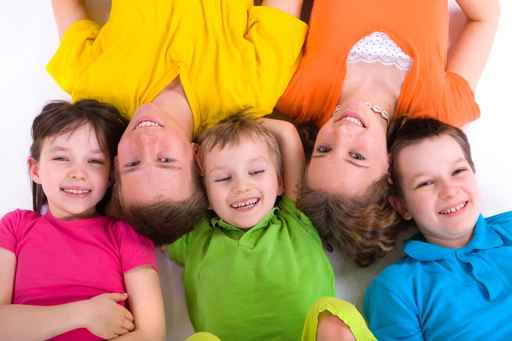Last week, Brad Pitt and Angelina Jolie tied the knot — or finally tied the knot if you’re a follower of pop culture websites or mags.
While they didn’t follow the typical trajectory — meet, date, fall in love, become a committed couple, move in together, wed, have kids — they ended up in the same place anyway, (presumably) marital bliss. They just decided to have the kids — all six of them, although Angelina came with one — first. Is there something wrong with that? 
Gaby Hinsliff of the Guardian says no. In fact, she wonders if they didn’t do it a better way, given the fact that one in four unmarried couples ties the knot within five years of becoming parents:
Some, perhaps, might have been brought together by the baby but for many marriage was probably always the long-term plan; it’s just that they have good reasons to put the cart, as my granny would have said, before the horse.
I would be concerned for those who were “brought together by the baby”; we used to call those shotgun weddings, and they rarely were healthy for the couple or the kid. The “good reasons” speak to financial realities for Millennials nowadays:
The gloriously unattainable fantasy for many young women now isn’t a man and a meringue, but a house. It makes no economic sense for a couple struggling to save £30,000 for a deposit to blow everything on a frock and a honeymoon. And given the age at which first-time buyers finally get the keys, the next most urgent priority for many is probably to get pregnant before it’s too late. Marriage naturally gets shuffled to the end of the list, becoming less the starting point of family life than the full stop at the end of it – invariably parked until someone has the time and the energy to think about it.
Well, you don’t need a house to be happily married. But whatever. By 2016, half of all the babies born in Britain will be born to unmarried women, she notes. In the United States, that number is closer to 40 percent. As sociologist Philip Cohen detailed this week, just 34 percent of all young children are being raised in what we consider a “normal” modern family — two working parents.
Times are changing.
There’s a lot of hand-wringing over children born to couples that aren’t married. Sometimes that concern is justified, especially for fragile families. Yet as many scholars have pointed out, telling them to just get married will not get them out of poverty. (Interestingly, poverty rates for unmarried moms are high across the world, but they are highest in the United States, Cohen points out. That speaks volumes.)
Clearly, Brad and Angelina don’t have this financial problem. But they also didn’t delay marriage because of “troublemaking men,” incarceration, abuse, unemployment or because they can’t afford to get married — many of the reasons poor women cite as delaying marriage (an institution they value, perhaps more than their middle-class sisters). It was a choice they made that speaks to a bigger issue that Hinsliff and others aren’t addressing — commitment to parenting.
Couples don’t have to be married to raise kids well (after all, same-sex couples who weren’t able to marry have been doing that for decades). And as I’ve written before, kids don’t need their parents to love each other. What kids need is stability, and Angelina and Brad gave their kids stability because they were committed to them (as well as each other) and probably could have continued that way forever. The marriage license and wedding — as symbolic as they are — didn’t make them be or act any more committed than they already are, nine-years into a parenting relationship. The pressure they felt to tie the knot supposedly came from their kids (and I suddenly feel a great need to ask my long-time cohabiting parent friends how — or if — they have dealt with that even though they clearly have resisted that pressure). Even if that’s true, the kids most likely absorbed that from societal expectations that people, especially parents, should be married. For whatever reason, society tends to see cohabiting couples as “less than.”
While I’m supportive of childree couples who choose to marry (or not), I recognize that not everyone feels the same way. While it’s lovely to imagine that society worries about childfree couples, the truth is we don’t; no one outside of family and friends cares whether you stay together or not if kids aren’t involved.
Not that I know them (I don’t) and can say this with 100 percent conviction, but by all appearances Brad and Angelina have been doing a fine job of co-parenting their kids. That’s really all that matters, right? I don’t think we need to encourage couples to have kids first and then tie the knot or vice versa, even though I agree with Hinsliff that having kids first may create couples that “have already weathered plenty of ups and downs, who know exactly what is meant by ‘for better, and for worse’ and are still willing to sign up for a lifetime of it.” I’d feel much more comfortable supporting the commitment couples make to co-parent once they have kids, married and living together or not. What about you?
Want to keep up with The New I Do? Pre-order the book on Amazon, follow us on Twitter, like us on Facebook. Let’s Occupy Marriage!
(polls)
















